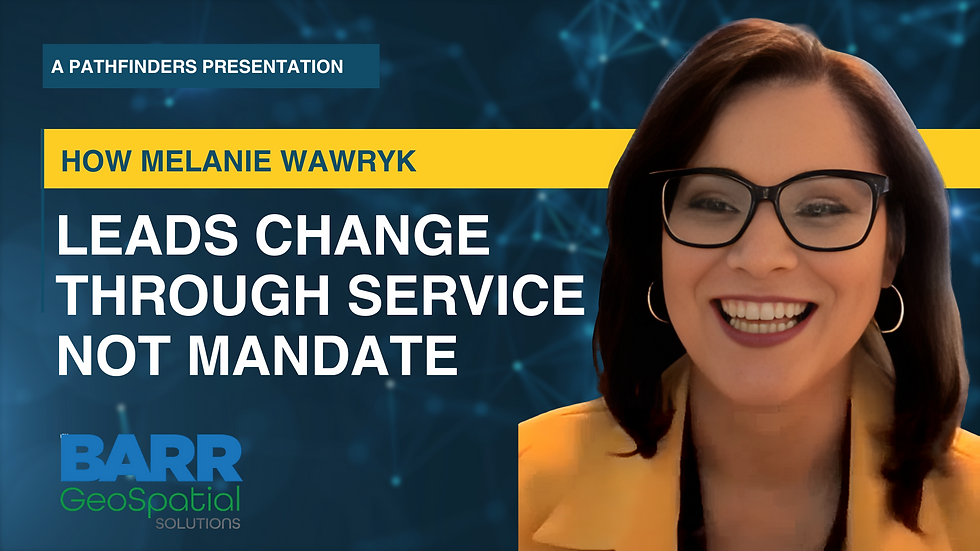How Jeff Lamb Is Protecting Our Public Resources
- Pathfinders For Good

- Jun 12, 2024
- 3 min read
Updated: Aug 29
The Stream That Started a Movement
Jeff Lamb was seven years old when he first felt the pull of something bigger than himself.
Every day after school, he'd bike down to a little stream north of Toronto, fishing rod in hand, losing himself in the rhythm of water over rocks. His father would pick him up on the way home from work, and they'd share a running joke about Jeff's adventures by the river.
What started as simple father-son bonding would become something profound. "Here's the compass, here's the map, get us to the end," his dad would say on their multi-day canoe trips into Algonquin and Temagami. For a child, being trusted to navigate vast wilderness felt empowering. What happened next changed everything.
Two Kinds of Resources at Risk
Years later, as a GIS professional flying over British Columbia, Jeff looked down at massive cut blocks—forestry devastation he'd helped create through his work. The sight made him sick. "I felt like I helped destroy the land," he recalls. "That did not feel good as a legacy."
Jeff discovered he shared something important with changemakers everywhere: the weight of unintended consequences. His technical skills, meant to help, had contributed to environmental damage. Like many professionals today, he faced a troubling question: How do you use your expertise to protect rather than exploit?
The answer would reshape his understanding of what needs protecting. It wasn't just natural resources—it was the stories and data that help communities thrive.
The Twenty-Minute Revolution
Working with York Region's municipal team, Jeff experienced a breakthrough moment. In just twenty minutes, they opened windows between different government databases—not sharing data, just allowing trusted partners to see it.
"That sounds simple," Jeff explains, "but let me tell you the benefits." If you have a medical emergency on one side of a particular Toronto street, ambulances arrive faster than on the other side. Why? Because York Region's collaborative data sharing gives first responders better information.
That question—why should location determine survival chances?—changed Jeff's entire approach to his work.
From Basement Podcast to Global Platform
This insight transformed how Jeff approaches resource protection. During COVID, alone in his basement, he launched Pathfinders as a podcast celebrating everyday heroes. The simple concept grew into a global platform showcasing people creating positive change.
But Jeff's bigger vision emerged: a National Data Trust for Canada. Like the Green Belt protects physical resources, this trust would protect community data, making it accessible to entrepreneurs and small businesses who can't afford expensive datasets.
"Imagine having access to all the open data in your country," Jeff says. "Small entrepreneurs could compete on equal footing with large entities."
Your Data Protection Pathway
For changemakers reading this, Jeff's story offers both a mirror and a map. Maybe you've felt that weight of unintended consequences from your professional work. Perhaps you've seen how information silos prevent communities from thriving.
Jeff's journey suggests three reflection points:
What resources in your community need protection?
How might your skills create unexpected positive ripple effects?
What would twenty-minute collaborations look like in your field?
His father's lesson echoes forward: we're all here together, each contributing our piece to doing good. The compass and map are in your hands.
Ready to explore more of Jeff's insights?
Jeff's full conversation reveals his detailed vision for the National Data Trust, stories from municipal heroes protecting the Green Belt, and practical steps for getting involved in local resource protection.
Explore the full episode or audio summary using the links provided below.
Ready to begin your Pathfinders journey? Visit www.pathfinders.social/voices to begin!









Comments